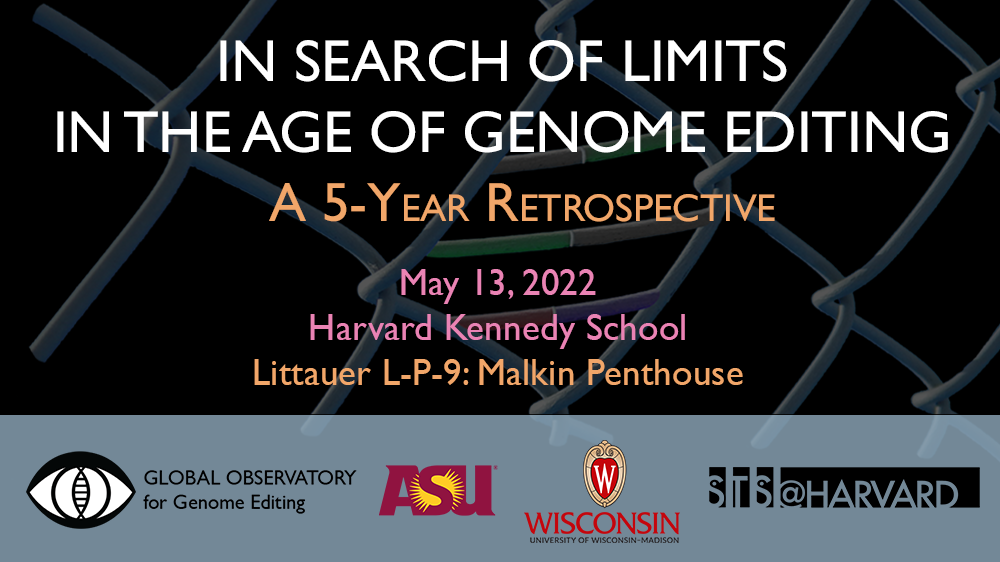In Search of Limits in the Age of Genome Editing: A 5-Year Retrospective

In the past five years, we have seen the emergence of a global patchwork of laws, policies, recommendations, proposals, conventions, and declarations that define and delimit the field of permissible genome editing research. This workshop, the first in a series, aimed to explore the concepts of limits that are reflected in these developments: limits to technological applications, to research, and to knowledge; limits on the scope of deliberation and extent of participation, on the range of moral questions that should be asked, and on the forms of reasoning, evidence, and expertise required to make informed and democratic decisions.
We built on the 2017 “Editorial Aspirations” conference at Harvard that provided a forum for discussing the future of human genome editing, a discussion that ultimately led to the formation of the Global Observatory. The succeeding five years brought a proliferation of policy approaches intended to set bounds on gene editing research and applications, even as science and technology continued to forge ahead. Numerous international expert advisory bodies have taken leading roles in delimiting responsible from irresponsible research, with different framings and outcomes.
Given the complexity of the ethical landscape and the variety of mechanisms at work in setting limits, we aimed to think systematically about how limits to human genome editing are being defined and to identify salient issues and positions that may have received less attention than deserved. In short, the workshop hoped to characterize how today’s discussion of limits may itself be limiting. This workshop therefore sought to further the Global Observatory’s mission of broadening the present scope of deliberation, centering not just on the limits themselves, but also on the processes that institutionalize them, the voices that contribute to them, the human values that animate them, and the forces that may push back against them.
Introduction and Welcoming Remarks, 9-9:30 am EDT
Sheila Jasanoff, Harvard Kennedy School
George Daley, Harvard Medical School (virtual)
Panel 1: Genome Editing: Where Do We Come From? Where Are We Going?, 9:30-11 am EDT
|
Peter Mills, Nuffield Council on Bioethics Françoise Baylis, Dalhousie University Katherine Littler, World Health Organization Laurence Lwoff, Council of Europe (virtual) |
Moderator: Sheila Jasanoff, Harvard Kennedy School
|
Panel 2: Locating the Human: The Needs and Purposes of Genome Editing, 11:30 am-1 pm EDT
|
J. Benjamin Hurlbut, Arizona State University Rachel Salzman, Alcyone Therapeutics John Evans, University of California, San Diego |
Moderator: Krishanu Saha, University of Wisconsin-Madison |
Panel 3: Interrogating Limits, 2-3:30 pm EDT
|
Katie Hasson, Center for Genetics and Society Erik Sontheimer, University of Massachusetts Chan Medical School Elizabeth Bartholet, Harvard Law School |
Moderator: John Evans, University of California, San Diego |
Panel 4: Embryonic Limits, 4-5:30 pm EDT
|
Sheila Jasanoff, Harvard Kennedy School Jianping Fu, University of Michigan Ubaka Ogbogu, University of Alberta Krishanu Saha, University of Wisconsin-Madison |
Moderator: J. Benjamin Hurlbut, Arizona State University
|